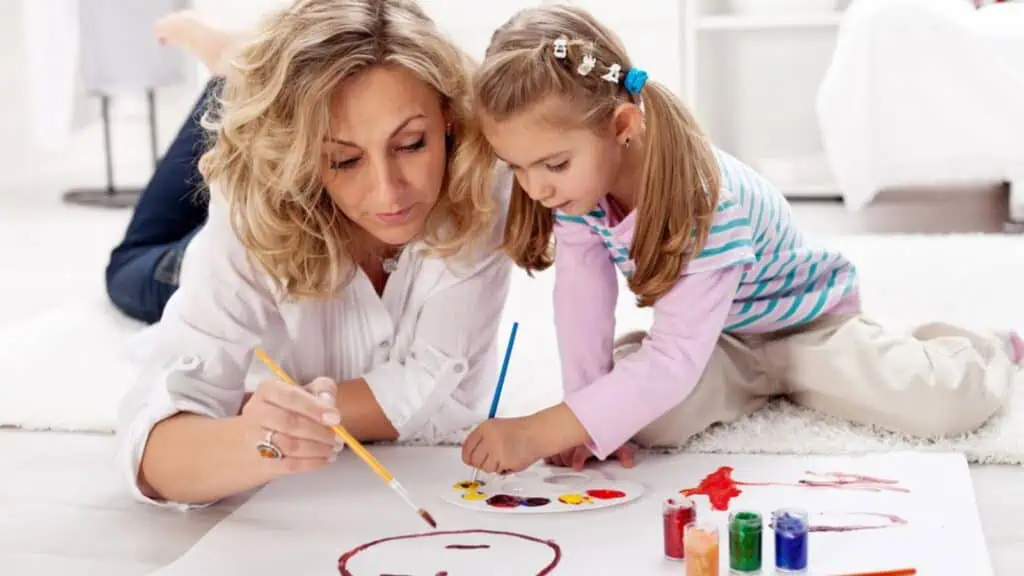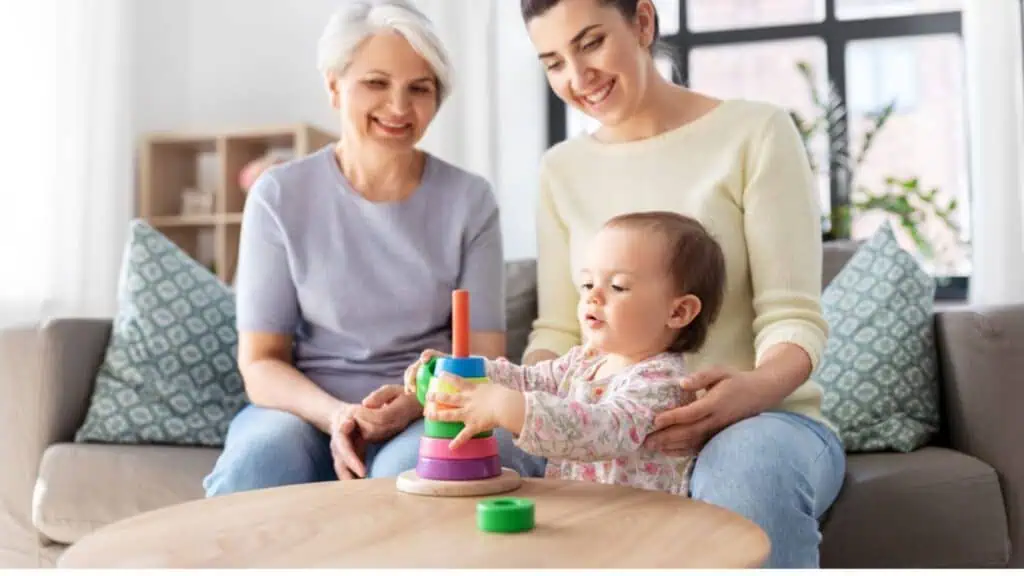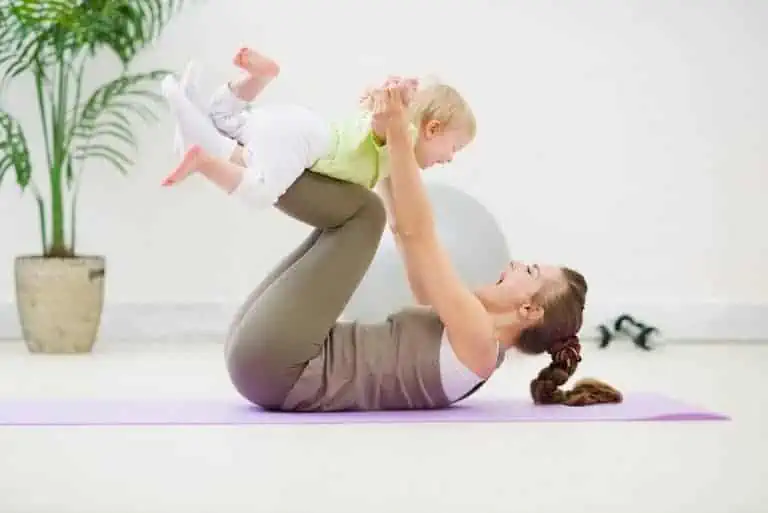12 Benefits of Having Kids Later in Life (and 4 Cons)
This post may contain affiliate links. As an Amazon Associate, I earn from qualifying purchases.
In recent years, many couples have started their families later in life. In the 70s, the average U.S. woman gave birth for the first time at around 21. However, recent data shows the average age of first-time mothers has risen to over 27 in 2022.
Additionally, births to women aged 40 and above have increased, with a 6% rise for women between 40 and 44 and a 12% increase for women over 45 from 2021 to 2022.
But is there an ideal age to have a child? It’s a question that confuses many couples, especially with that so-called deadline for motherhood society has set. However, having kids late is not just okay; it can be one of the best decisions for some people.
So, here are 12 benefits (and a few downsides) if you decide to have kids later in life. Obviously, these won’t be true for all parents at any age, but they cover general trends seen in parenting data.
1. Financial Stability

One significant advantage of becoming a parent later in life is being in a better financial position. Older parents usually own a home, have fewer debts, and can save more money. This economic stability means they can give their kids a safe and secure upbringing, afford the best childcare, and save up for education without the usual stress younger parents have.
Moreover, delayed parenting allows parents (especially women) to get higher education without breaks, which is linked to improved financial stability. Studies suggest that highly educated people have better earnings potential, job security, and access to more career opportunities.
2. Emotional Maturity

Because older parents are more settled in their personal and work lives, have traveled, and have enjoyed their lives to the fullest (typically, not always), they have the mental capacity to deal with the joys and adventures of raising kids.
This emotional maturity means they are likely to be more patient, understanding, and encouraging, which are crucial in helping a child feel supported and loved.
A 2017 study found that children of older mothers usually have fewer behavioral issues than younger mothers. The reason? Because older mothers can better regulate their emotions and are less likely to scold and punish their children, creating a positive impact on their kids.
3. Stronger Relationships

Waiting a bit before starting a family gives couples plenty of time to focus on their relationship. By the time they become parents, they are more than ready to handle parenting as a team. They better understand, respect, and trust (talk about co-parenting goals).
This means they can communicate better and are usually on the same page when making decisions and facing the ups and downs of raising kids.
It also means they can share parenting duties, which can relieve a lot of pressure. Ultimately, this strong bond between parents helps build a more supportive and loving home.
4. Older Parents are Happier

Studies show that older parents are often happier and more satisfied with their parenting journey than younger ones. This extra happiness might come from many things, like being more mature, financially stable, and well-settled. This leads to calm and positive feelings in parenting, where they can cherish the time spent with their children.
Plus, the patience and wisdom they’ve collected from life help them handle parenting challenges more efficiently, adding to their overall joy.
5. More Life Experience

Having kids later in life means parents have many life experiences they can pass on to their children.
They understand life better because they have already gone through many different situations, such as successes, failures, and significant life moments. They can help their children deal with challenges head-on with valuable advice from experience. They teach essential skills like resilience, critical thinking, and empathy because they’ve been practicing these things for years.
In short, older parents use their rich life experiences to help their children learn and grow better than younger parents.
6. An Established Support System

Having kids later in life means you’ve likely had more time to build solid friendships and support systems. These friendships have had time to grow and strengthen; they’re supportive and reliable.
It’s great because you’ve got people to turn to for advice, emotional support, or even a helping hand when needed. Plus, your circle can be a lifesaver with things like childcare, offering a break for parents with their babysitting offers or tips on handling the ups and downs of parenthood.
It makes the whole journey of raising kids feel less overwhelming and a lot more like a team effort.
7. More Time for Children

Having already settled into their careers and lives, older parents are more flexible in their schedules, allowing them to dedicate more time and attention to their children. At this stage, they have more potential to choose stay-at-home parenting or shift to part-time work.
It benefits their child because a parent is available and involved in their upbringing and daily activities during the early years. It can promote a loving home environment that supports the child’s development and strengthens the parent-child bond.
8. Greater Appreciation

When you have children later in life, you might appreciate it more than younger people. You have had time to focus on your personal goals and may better understand what truly matters to you.
Giving importance to family values can significantly benefit your child’s upbringing. If you prioritize family time, you are more likely to be present and engaged in your child’s life and attend important events and milestones.
9. Longer Life Expectancy

It sounds odd initially, but having kids later in life could help you live longer. Studies show that women with their last kid after turning 33 are likely to live longer than those who wrapped up their family plans before hitting 30.
The study suggests that the health benefits of having kids later might be a reason for increased lifespan. It is another exciting piece of info for those thinking of delaying parenthood if you’re not ready yet.
10. Older Dads Have Smarter Sons

While this might not be the case for everyone, an interesting study published in the Journal of Translational Psychiatry suggests that older fathers tend to have sons with higher IQs.
The research found that sons born to fathers over 40 scored higher on cognitive tests than those born to younger fathers.
While the exact reasons are not entirely clear, it is believed that older fathers may pass on specific genetic traits that can result in enhanced cognitive abilities.
11. Having a Baby Later in Life Boosts Mom’s Brainpower

Having kids later in life is also linked to long-term benefits for a mom’s brain. Research shows that postmenopausal women who had their last baby after turning 35 s have better verbal memory.
Plus, women who started motherhood at 24 or older have a better executive function. This includes focusing attention, holding onto information in working memory, and problem-solving abilities.
12. Healthier Lifestyle Choices

You understand the importance of keeping yourself healthy as you age, especially if you have kids later in life. It means focusing on staying active, eating well, and managing stress better.
These habits can help your kids feel great, and they might adopt these healthy habits, too. They’ll get to eat healthy food, stay active, and learn how important it is to care for themselves from an early age.
4 Cons of Having Kids Later in Life

In reality, the pros we just reviewed depend on the lifestyle parents lead. There is an assumption that people in their 30s and 40s have more figured out in life, but this isn’t always the case.
On the flip side, there are some potential cons to consider, too.
1. Increased Health Risks

One of the most significant drawbacks of having children later in life is the increased health risks for both the parent and the child with pregnancy and childbirth.
As women age, they may face higher chances of fertility issues, gestational diabetes, high blood pressure, and preterm labor. Older fathers may also have a higher risk of passing on genetic abnormalities and other health complications to their children.
Studies have shown that the risk of chromosomal abnormalities, such as Down syndrome, increases with maternal age. A woman’s risk of having a child with Down syndrome is 1 in 1,250 at age 25, but it increases to 1 in 100 by age 35.
2. Decreased Energy and Physical Stamina

Raising a child requires significant energy and can be physically demanding, especially during the early years. Having a child later in life makes it challenging to keep up with the needs and activities of a young child.
Sleep deprivation, a common challenge for new parents, can be tough for older parents who may already be dealing with age-related sleep changes. This lack of energy can impact their ability to fully engage with their child and maintain a healthy work-life balance.
3. Social Isolation for the Child

Children born to older parents may experience social isolation, as their friends might have younger parents. This age gap can make it hard for the child to relate to their friends’ experiences or engage in similar activities.
For instance, if a kid has older parents, their grandparents might not be around anymore, or their parents might not be up for running around and playing because of age-related issues. It can affect a kid’s social life and where they fit in.
4. Not Getting to See Grandparents Grow Old

While having children later in life means less time between parents and child, it could also mean the child may not get to see their grandparents grow old.
It’s a mix of positive and negative, depending on the situation. Some children may miss out on valuable relationships with their grandparents, while others may not have to witness their grandparents’ decline in health.
20 Strong Words Parents Should Never Say to Their Kids

Countless adults sitting in a therapist’s office today are grappling with the lasting impact of words spoken by their parents during childhood. Regardless of how you perceive yourself, in your child’s eyes, you are nothing short of the most remarkable thing to happen to them since “skip intro.” This underscores the critical importance of being mindful of what you say to your children, as your words become the small but influential voice in their developing minds.
20 Strong Words Parents Should Never Say to Their Kids
How to Be a Good Mother: 16 Practical Tips

Being a mom is one of the world’s most important, challenging, and rewarding jobs. It’s also one of the most difficult to define. What does it mean to be a good mother? There are as many answers to that question, but none of them have anything to do with striving for perfection or doing more.







